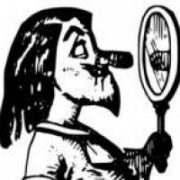The Transition from Postdoc to PI: Part 4 Building a team
Part 4: Building a team
by Amanda Rasmussen
As reflected by the length of this section, building a team is perhaps one of the biggest challenges to new academics. My team started as me, myself and I. And we don’t always agree! Aside from diluting the Gollum-style conversation, building a team is crucial to get things ticking forward. Students (including undergrad students) provide preliminary results for grants, papers, and demonstrates your ability to supervise.
This was a particular challenge for me in the first year and a half. I had a very frustrating situation where one administration box was incorrect on my HR record. This meant applications were knocked back before even being read. As soon as I discovered this was happening we rectified it and things have begun to move forward. The lesson from this is get details for every knockback in the first few years so you can identify issues.
Another challenge I’ve faced is the frustration of PhD studentship schemes. The main one here takes 2 years to get a student signed onto a project. This is perhaps an exception (for the UK) but regardless the time taken to apply and deal with initial administration once someone signs on takes a lot of effort for new academics – especially if there’s no easy place for new academics to find the right people who can help. In fact this process is responsible for a large part of my frustration and ‘imposter syndrome’ (see later) over the past few years.
One thing I have been very lucky with though is recruiting good candidates. A large part of this has been through colleagues and collaborators recommending me to potential candidates. As a result, all of my current students (3 primary supervised, 3 co-supervised) are bright, self-driven individuals who are a joy to work with. But don’t just take it from me here’s what the others said!
“Use every contact you have to try and maintain your profile during the first couple of years — seminar and conference invitations” – Tom
“Be sure to get people that you can relate to and work with easily. That is an off the CV criteria for me. That said it doesn’t always work out. I am also never more nervous than when I introduce a new member to the lab, as to whether they will like the new person as I did, or will it destroy the chemistry that was already there.” – Aaron
“Finding good people who are also great team members is hard and definitely took longer than I had expected. At the end of my post doc I was working on establishing an independent research plan, but did not spend too much time thinking about people. In retrospect, I should have been more proactive at an earlier stage – using my network to advertise and draw potential students.” – Idan
“It is incredibly difficult to find good people when you are just starting. The other thing that I have been trying to do, is recruit a diverse group of people. Thinking about increasing representation of under-represented minorities, and how to best attract diverse candidates. Along these lines, I sat down and outlined my expectations of people in the lab and what they can expect from me. I then make this available to people interested in the lab. While this was difficult for me to write, I have found this is very attractive to candidates, especially when you don’t yet have a reputation for training and mentoring.” – Erin
The story is even tougher for employing post-docs because this requires success on a major grant or supporting them getting a fellowship. I’m yet to succeed in this process but I have some excellent people applying for individual fellowships to join my team. These people contacted me directly because they knew my publications or saw me at conferences. I also made a lab webpage which shows the research we are doing and I’m active on twitter – both things I was advised to do by mentors and I’m sure these things have helped with my visibility (regardless they have definitely helped build new collaborations).
While we’re on people, another thing that is an adjustment during the transition is being responsible for others.
“If I take a graduate student I am responsible for paying for them for 5ish years. Or if I happen to make an accounting mistake, I have to lay off my tech who relies on this job to support her family. Those are the things that keep me up at night most. How to effectively obtain grants so that I can pay the people that work for me!” – Erin.
Building a team is a pressure point but I thoroughly enjoy the discussions I’m now having with my newly growing team. I start the students with writing a review (which they use for their first year review and will use for their thesis introduction) and the first thing that I’ve noticed is the moments of ‘aha’ as they understand each new level of detail in their field. Then comes the real fun with intellectual conversations focused on our research – both theoretical and practical!
Katie says:
“I also really enjoy working with my lab group, I’ve got fantastic people working with me and it has been a joy to help them make their way through their MSc/PhDs/Postdoc research, all of their projects are starting to produce exciting data so I’m now looking forward to the next phases of writing and developing follow-on research (and all the challenges that represents!)”
Team Building action points: 1) write an expectations document to provide potential candidates; 2) use your network to recommend potential candidates; 3) build your public profile (webpage, twitter, conferences, invited lab visits). These can also count as action points for maintaining momentum. 4) Meet/speak with potential candidates to see how they will fit with you and your team.
All of us agree that mentoring is very important. Follow on to see a summary and links to additional information on mentoring to help with the transition from Post-doc to PI.
LINKS:
– Part 3: Hitting the ground running – but not too fast!
– Part 6: Academic Imposter Syndrome (AIS – pronounced Ace)
– Part 7: Don’t forget – IT IS EXCITING!





